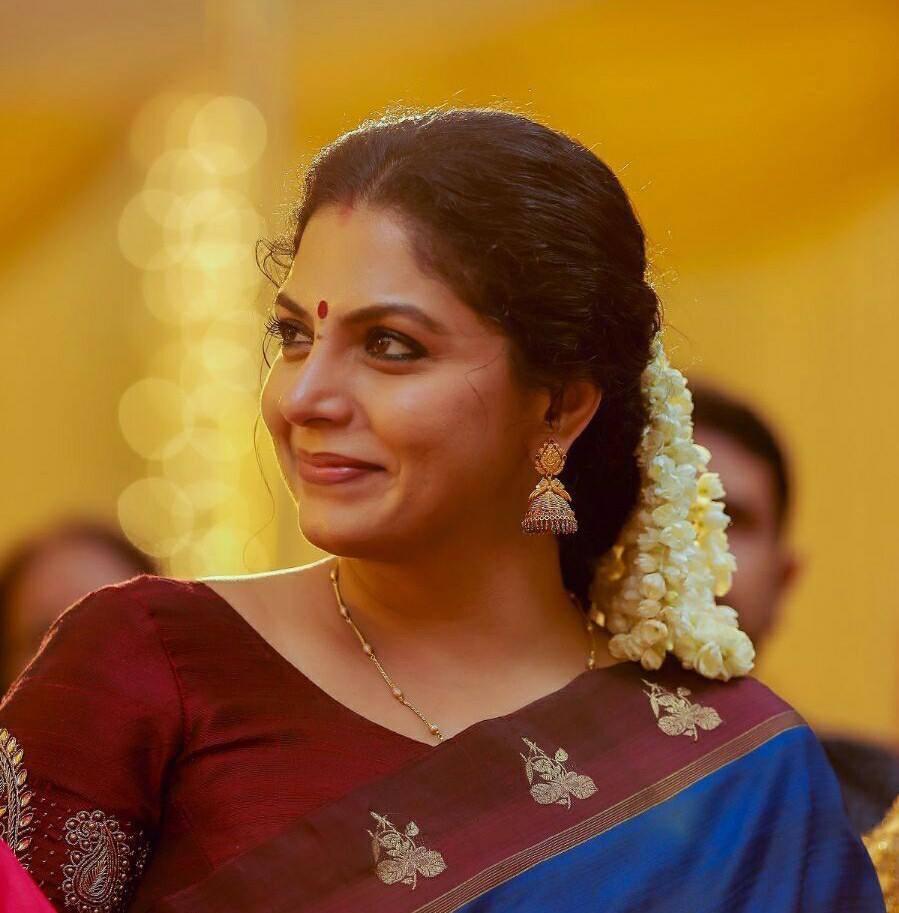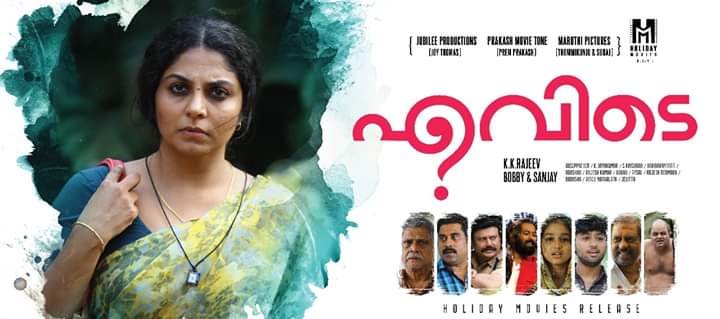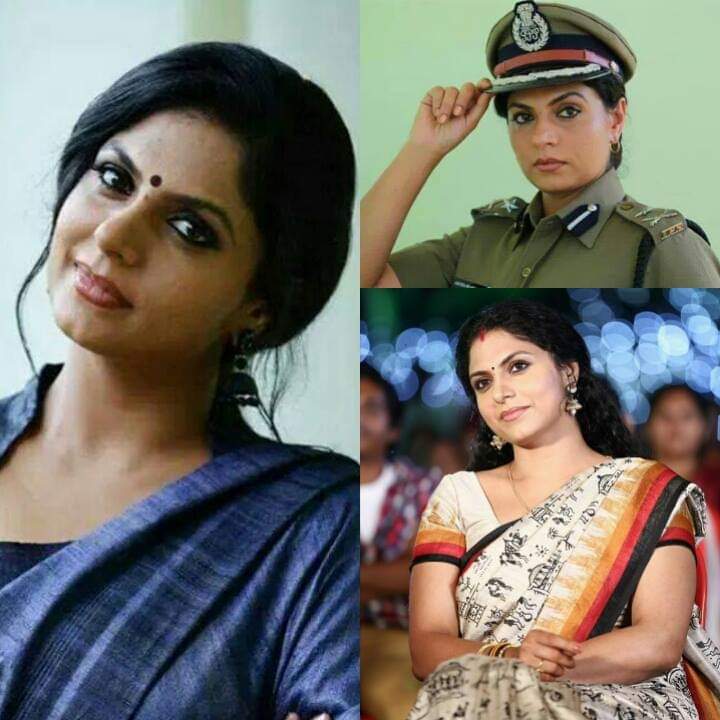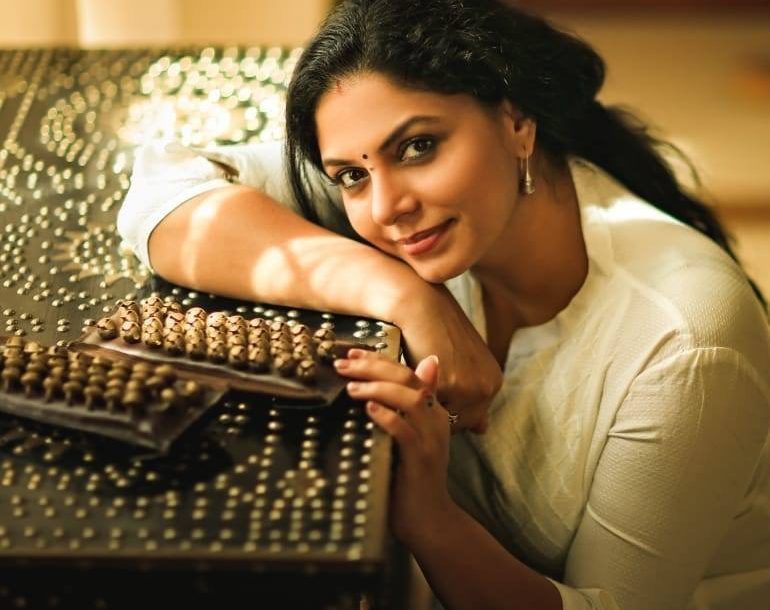Approximately 7 minutes into the telephonic conversation, Asha Sharath interrupts— “I need to pass the immigration department. Can I call you once it’s done?” And exactly 5 minutes later, her name flashes on my phone screen. But within a few minutes, she again begs pardon— “I am really sorry for this. But they are really pressuring me to board the flight now. Would you mind if I call you once I reach the destination? So sorry, dear. Will call you the minute I land.” And the call comes at the promised time, though with an apology, wondering if we should have this conversation the next day. For someone not very used to such display of courteousness from actors, where they shrug away every act of unprofessionalism, I am instantly floored. But then I realise that danseuse and actor Asha Sharath bring an effortless grace and dignity in everything she puts her mind into. Be it dance, acting or just a routine promotional interview.
At the moment Jessie, the character of her latest release, Evide has consumed her thoughts. Directed by KK Rajeev, written by Bobby-Sanjay, it’s the “strongest character she has played so far.” When the director, approached her with the story, she recalls how, unusually, he detailed the character more than the story and its milieu. Jessie is an ordinary homemaker who resides in a small village in Kerala and is more worried about paying her son’s fees and buying rice for the day. But one day her husband, who is a drummer, goes missing and she steps out of her comfort zone in search of him. “That brief hooked me.” But there was more to the character, in this film that she brackets as a family drama and thriller.
She isn’t a homework actor, it’s more about reading the script several times, till she understands the character. “I don’t learn the dialogues by heart. One can’t pre-plan. I go according to the situation. Even in dance, I usually act according to the scene.”
Read More
- Movie Review : ‘English Vinglish’
- Did Thalapathy Vijay shine in Lokesh Kanagaraj’s LEO?
- Mall of Muscat solidifies its position as the country’s leading fun and entertainment destination by launching Fun VR
- Three-time Oscar nominee Piper Laurie dies at 91
- TAS Weekly: The fascinating rise of Omani singer Jihad Al Raisi
A different filmography
In an industry where a female actor’s shelf life is considered redundant post 30s and marriage, Asha Sharath is probably the only actor who has successfully managed to break that stereotype. Asha made a few television appearances before marriage, was an RJ and programme producer in Dubai after marriage, and launched her own dance academy, Kairali Kalakendram in 2003, that has branched out in Middle East, Brazil, UK and USA. In 2011, Asha returned to acting in a daily soap, Kumkumapoovu, that instantly made her a household name, and ran for almost 800 episodes. “I just did it as a joke but then it spiralled into something big. Even now despite acting in so many films, people still call me Jayanthi.”
Films beckoned her in no time. But it wasn’t until Drishyam that she was able to break away from the image of her long-standing TV serial character. IG Geetha Prabhakar, who manipulates her position to find her wayward son. It was so effective that she was the first choice when the film was remade in Tamil and Kannada. “When I was doing other languages, I felt like I was doing something new each time. Besides I wanted to rectify all the mistakes I made in Malayalam. It was like an exam retest. Having said that I also felt responsible as I didn’t want to pull the graph of my performance down.”
But soon after, she was being flooded with similar roles in Tamil and Telugu. “I did Bhaagmati in Telugu but didn’t know that they would dub it in Malayalam and Tamil. I’m sort of wary of cop roles now.”
Something to perform, something different with a message, is her criteria for picking roles. “I am not bothered about getting a big space or a full-length role. Since I have my limitations as I have a home, children, dance performances and schools to take care of, I make sure only to accept characters where I can give my 100%.”

Balancing act comes naturally
Films, she admits, agree with her hectic time schedule more than a TV series where the onus falls completely on her. “Television is like marriage. It’s a long-term relationship. You can’t backout. But cinema is something I can do according to my own terms and conditions.”
While she has a “great team of people” to take care of her dance schools (over 3500 students!), she is extremely clear that none of it is going to interfere with her time with family. So, it’s usually 3 films a year and 2 dance show a month. “Since I mostly choreograph all my classical dance shows, I can practice on my own. Mostly the dance shows finish in a day and I catch the early morning flight back home. So, the children get the feeling that their mom is working extra hours at the office.” Another perk is being able to visit her parents every month, a privilege for an NRI.

From Cicely, Devika Nair to Suma
It’s also equally reassuring to see how she manages to dodge the trap of being stereotyped, despite being in the 30s age group. But it wasn’t easy, she recalls. Soon after Paavada, in which she played a yesteryear actor and mother of Prithviraj, she was inundated with “mother roles.” “Being a mother is fine, but it has to have dimensions to it. There has to be something to remember.”
Her character in Anuraga Karikkin Vellam is one such mother, someone who reminded her of her own mother, Kalamandalam Sumathi. The docile, soft-spoken Suma who had conversations with her house cat, led an uncomplaining life, putting up with a grouchy, uncommunicative husband, sat lightly on her. “Suma is my Amma. True she was a renowned dancer but at home she was a dutiful wife, who was a bit scared of her husband. Even now, one call from him, startles her. Her mannerisms subconsciously got into me.”
Being Jessie was a high as she thinks “we don’t have many stories about ordinary people today.” She recalls a particular incident when a lady (since they couldn’t get junior artistes, the residents stepped in) who was part of the crowd pulled her hand and invited her to attend the church. She is grateful for the audience who are equally receptive to female-centric films these days.

“It’s difficult to watch myself on screen. I don’t even have the courage to watch my students dancing on stage.” She is excited about Telivu, an off-beat film written by Cheriyan Kalpakavadi and directed by MA Nishad.
Though she maintains that the director is the captain of the ship, she has been lucky enough to be part of films where her suggestions were considered. “I usually work in projects where this communication is conveyed.”
That apart, she is extremely upbeat about her magnum opus dance theatre production—Deva Bhoomika, inspired by the Kerala floods and how the state came together to fight it. Directed by TK Rajeev Kumar, choreographed and written by her, the “show which has incorporated all the dance forms of Kerala, along with Mohanlal playing the role of a satirical Malayali bystander, will be like watching cinema.” It will be held at 200 stages in and outside India and the proceeds will go to Tejomayi and Pravasi Kshema Padhathi.
“It’s a reminder of what we were or what we should be.”







